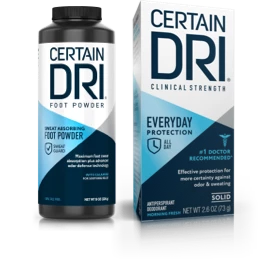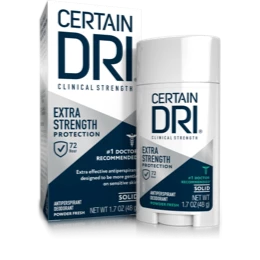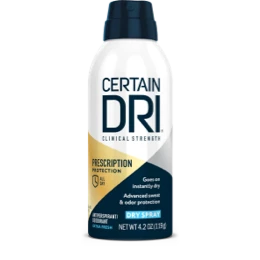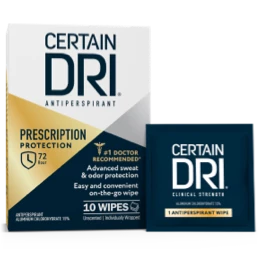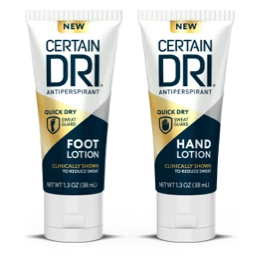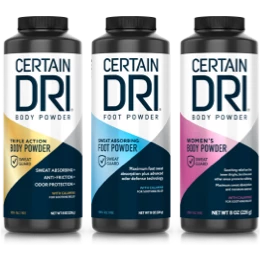Here’s How the Pandemic May Be Changing Your Sweat & Body Odor & What to Do About It
Has your personal hygiene regimen changed since the COVID-19 pandemic began? Have you noticed BO changes, too? If so, you are not alone.
Because many of us are not going out much (either to work, school or social occasions), we are also relaxing our grooming standards, showering less and forgetting antiperspirant application. Even our choice of clothing has changed. According to The New York Times, sales of sweatpants increased 80% last April!¹
Body odor changes during this pandemic are not just about skipping showers and roll-ons, however. There are some other surprising things going on, as well.
First, there is the impact of stress, which can lead to increased and smellier sweating. Apocrine sweat is released when you are under stress and is a thick, viscous fluid that can lead to bacteria growth and odor.
But bacterial growth due to stress sweating is not the only factor in pandemic body odor changes. Other skin microbial shifts may also be at play. When we change our bathing habits, the amount of time we spend close to other people (and their skin bacteria/microbiome), and stop using antiperspirants, the types of bacteria living on our skin can change and cause new, different body aromas.
Similarly, antiperspirant routine changes can be important because antiperspirants are designed to lower sweat volumes and therefore, they lessen the “food” and comfy environment for bacteria and, in turn, odor. When you decrease your antiperspirant use, your sweating will rebound, your underarms will be damper, bacteria will feed and grow, and odor can increase. Interestingly, it seems that the more you use antiperspirant, over time, the less sweat your glands are able to produce. In one study, long-term antiperspirant use was shown to, in fact, change underarm sweat glands so that they did not sweat as much.² A good reason to stick with your pre-pandemic underarm routine!
Finally, there are our clothing choices. Polyester fabrics tend to hold more moisture and smellier microorganisms. Just to put the difference in perspective, 80% of people found that an unwashed polyester shirt smelled worse than an unwashed cotton shirt. So, as you are shopping for sweatpants and sweatshirts, look for natural fabrics (like cotton, linen, silk, wool, bamboo, or hemp), if possible.
More ways to deal with unwanted odor:
- Wash regularly with an antibacterial soap.
- Use an antiperspirant with a deodorant at least once per day, preferably at night before you go to bed. Consider stronger antiperspirants such as “clinical strength” options. Make sure your underarms are completely dry before application to prevent skin irritation.
- Remove hair from areas where odor is an issue. This helps reduce bacterial growth on the hair shaft and, therefore, helps to also reduce odor.
- Keep odiferous body areas dry. Antiperspirants and hair removal helps with this, so can frequent clothing changes.
Certain Dri offers 3 levels of protection to help fight sweat and odor. Shop on Amazon today!
¹ https://www.nytimes.com/interactive/2020/08/06/magazine/fashion-sweatpants.html
² https://pubmed.ncbi.nlm.nih.gov/6712884/



